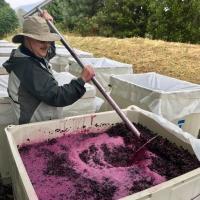-
Welcome to the eG Forums, a service of the eGullet Society for Culinary Arts & Letters. The Society is a 501(c)3 not-for-profit organization dedicated to the advancement of the culinary arts. These advertising-free forums are provided free of charge through donations from Society members. Anyone may read the forums, but to post you must create a free account.
The Pleasures of Moka
-
Similar Content
-
- 417 replies
- 77,209 views
-
On Raising One's Own Meat (and Poultry for Eggs), With Some Discussion of the Attendant Pleasures and Dilemmas 1 2 3 4 6
By chromedome,
- 131 replies
- 35,174 views
-
-
Recently Browsing 0 members
- No registered users viewing this page.




Recommended Posts